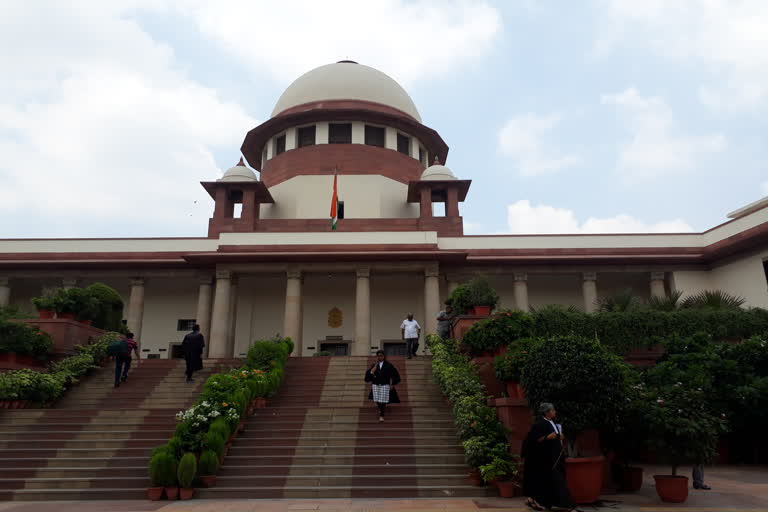New Delhi: The Supreme Court agreed on Monday to hear on Tuesday the Centre's plea challenging the Delhi High Court order staying its notification to allow the 2016 black money law to operate with retrospective effect from July, 2015 to book and probe offenders.
The Centre is also aggrieved by the interim order of the high court that restrained the Income Tax (I-T) department from taking any action against VVIP chopper scam accused Gautam Khaitan, against whom a black money case has been lodged.
The high court, in its order, said the Black Money (Undisclosed Foreign Income and Assets) and Imposition of Tax Act, which was enacted in April 2016, could not be allowed to operate with retrospective effect from July, 2015.
A vacation bench of justices Indira Banerjee and Sanjiv Khanna took note of the submissions of Solicitor General Tushar Mehta, appearing for the government, that the high court erred in staying the Centre's notification to invoke the black money law with retrospective effect.
"It will be listed tomorrow," the bench said when Mehta said CBI inquires were launched on the basis of the law's applicability.
The bench refused to entertain the plea of senior advocate N K Kaul, appearing for Khaitan, that the matter be listed for hearing after a week as Khaitan's advocate-on-record was not available during the week.
"You (Kaul) mention this (non-availability of lawyer) before the bench tomorrow," it said.
On May 16, the high court had restrained the I-T department from taking any action against Khaitan.
On invoking the black money law with retrospective effect, it had said Parliament, in its wisdom, had enacted the Act which was to come into force from April 1, 2016 and as the date was expressly decided by Parliament, it could not be made applicable with retrospective effect by way of a notification.
The high court has now posted the matter for hearing in July.
Read more:Sensex zooms 1100 points after exit poll results
Khaitan is one of the accused in the Rs 3,600-crore AgustaWestland VVIP chopper scam. He has challenged the legality of various provisions of the black money law.
Khaitan has also challenged the I-T department's January 22 order granting sanction to lodge a criminal complaint against him under section 51 of the Act, which provides for a jail term between three and 10 years if found guilty of wilfully attempting to evade tax.
The high court had earlier asked the Centre as to how it gave retrospective effect -- from July, 2015 -- to the black money law, which was enacted in April, 2016 to deal with undisclosed foreign income and assets.
Khaitan has contended in the plea that action is being taken against him under the Act for assets which ceased to exist before the law came into force.
He has sought a declaration that under the black money law, the assessing officer is "not entitled to charge tax on a foreign undisclosed asset, which ceased to exist prior to the Act coming into force, only on the ground that such asset came to the notice of the assessing officer after the Act came into force".




